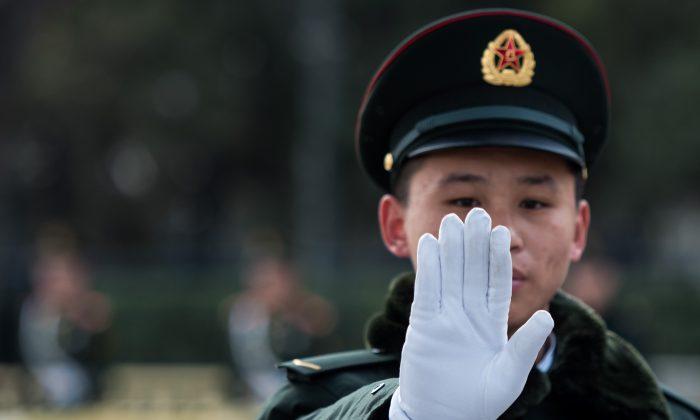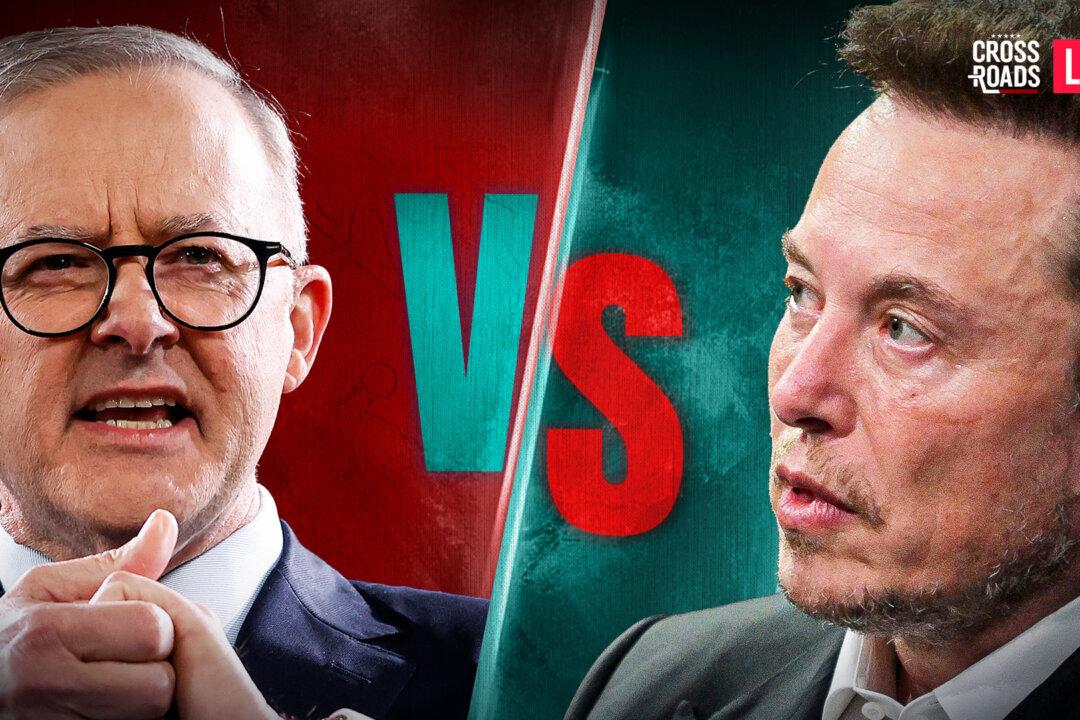This news analysis was originally dispatched as part of Epoch Times China email newsletters. Subscribe to the newsletters by filling your email in the “China D-brief” box under this article.
Chinese authorities haven’t been too secretive about their ambitions to govern the Internet, not just in China, but globally.
The latest step in this push was revealed on March 25, with the founding of China’s first national nonprofit organization for cybersecurity, the Cyber Security Association of China.
The association is being led by Fang Binxing, a key figure who helped build the Chinese Communist Party’s (CCP) system for censoring the Internet, the Great Firewall. Its secretary-general is Li Yuxiao, a research fellow at the Chinese Academy of Cyberspace and a proponent of China governing the global Internet.
It has 275 founding members, including major Internet firms, cybersecurity companies, scientific research institutions. These include Baidu, Alibaba, the National University of Defense Technology, and others.
While the program is being touted with the “cybersecurity” label, that phrase has a lot more meaning under the Chinese regime. The state-run Xinhua news outlet reported it will function as a “cooperation platform” for anyone interested in working with China on “cyberspace safety.”
Chinese state media repeated that China’s interest in cybersecurity ties to its goals to, as Global Times reports, “realize the nation’s strategic goal of becoming a strong Internet power.”

The goal of the organization, according to South China Morning Post, is to “serve as a bridge” between the Chinese regime and the public, and to “organize and mobilize forces in all aspects of society to participate in building China’s cybersecurity.”
All of this ties back to a push that was brought to the surface around November 2014, when the CCP hosted its first World Internet Conference, which had the slogan, An Interconnected World Shared and Governed by All.
Li Yuxiao was among the speakers, and stated according to the state-run China Daily, “Now is the time for China to realize its responsibilities.”
At the time, the United States had announced its plans to relinquish federal control over the Internet—a process it only recently completed by giving up its control of the Internet Corporation for Assigned Names and Numbers (ICANN).
Li viewed the U.S. move as an opportunity. He stated, according to China Daily, “If the U.S. is willing to give up its running of the Internet sphere, the question comes as to who will take the baton and how it would be run?”
“China is transforming from a participant of the Internet into having a leading and dominant role in it,” he said, adding “We have to first set our goal in cyberspace, and then think about the strategy to take, before moving on to refining our laws.”
Li repeated this goal more recently, in a Dec. 18, 2015, interview published on the World Internet Conference website.
He said China “has a right, as the country with the most netizens, to make the international rules of cyberspace governance.”
He added, “The establishment of rules is just a start.”
A report from the Chinese state-run news outlet, Xinhua, stated, “China’s efforts in Internet governance can be summed up as ‘cleaning cyberspace in accordance with the law; exploiting it with an open mind.’”
The CCP’s new association on cybersecurity carries the same overall message.
The new program isn’t really about cybersecurity. It’s about cybergovernance, and about extending law to the Internet—in this case, the laws of the authoritarian Chinese regime.
For the CCP, the word “cybercrime” is more than just hackers. As Xinhua stated, “The Chinese government has stepped up the crackdown on online rumors, pornography, gambling, and other cybercrimes.”
Those “other cybercrimes” tend to be a major focus in the CCP’s systems for Internet control—and include suppression of religion, free speech, and of people promoting democracy. A 2015 assessment of global Internet freedom from independent watchdog organization Freedom House, ranked China dead last—putting it behind even Cuba and Syria.
The CCP has been touting a line that the Internet is controlled by Western powers—particularly the United States—and it has been using this as the backbone for its push to gain participation in its programs from other countries.
Xinhua wrote in December 2015, that the CCP and developing countries suffer from “a lack of joint governance” online, and it blames this on the West, stating it is “mainly caused by some Western countries’ arrogance and monopoly of information and communication technologies.”
Despite Xinhua’s accusations against the United States, and other countries including Japan and even Sweden, it also had stories defending the Chinese regime’s use of the Internet as a tool for political and ideological suppression.
It even directly criticized Google for pulling out of Mainland China in 2010. Google left China over the CCP’s strict censorship of the Internet, and after uncovering a spree of Chinese state-run cyberattacks targeting its networks.
In reality, the Internet is governed by a multistakeholder model, where rather than having pure government control, it’s run loosely by a large and open network of stakeholders in the Internet that includes businesses, civil groups, research institutions, and nongovernment organizations.
Government oversight still plays a role, but typically only deals with crime and abuse.
The CCP wants to change this, globally, with its model of strict government control over all facets of the Internet, and all companies involved in the Internet.
After the 2015 conference, the Council on Foreign Relations reported that the CCP would likely do more to gain influence over the International Telecommunications Union (ITU) of the United Nations.
The ITU is a governing body in charge of telecommunications, and is trying to gain more power over the global Internet. With China and Russia as two prominent members of the United Nations, they’ve pushed major programs in the past to direct the ITU’s role in global Internet governance in their favor.
Some of the authoritarian programs proposed for global Internet governance through the ITU were outlined by the Center for Democracy and Technology, while the ITU was holding its meeting on rules for the Internet in November 2012. These included, it stated, programs to decrypt information passing through the Internet.
The center stated some of the proposals were troubling, particularly with some from Russia and several Middle Eastern countries to make the decryption programs “mandatory for Internet technology companies and network operators to build into their products.”
The CCP’s new Cyber Security Association of China appears to just be a continuation of these efforts, only it’s now using the the “cybersecurity” line to give a more benign appearance.


![[LIVE 4/26 at 10:30AM ET] New Push Started for Global Digital Currencies](/_next/image?url=https%3A%2F%2Fimg.theepochtimes.com%2Fassets%2Fuploads%2F2024%2F04%2F19%2Fid5633115-0426-1080x720.jpg&w=1200&q=75)


